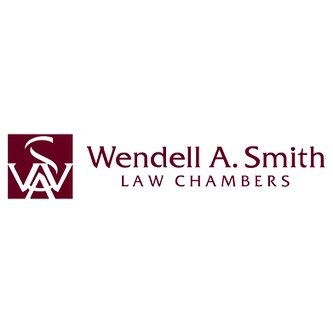Best Real Estate Lawyers in Freeport
Share your needs with us, get contacted by law firms.
Free. Takes 2 min.
Free Guide to Hiring a Real Estate Lawyer
List of the best lawyers in Freeport, Bahamas
About Real Estate Law in Freeport, Bahamas
The real estate market in Freeport, Bahamas, like much of the Bahamas, is vibrant and appealing, especially to international buyers looking for tropical properties. Freeport, the main city on Grand Bahama Island, offers a mix of residential, commercial, and investment opportunities. The Bahamian legal system is based on English common law, and as such, real estate transactions are facilitated by licensed attorneys who play a crucial role in ensuring that transactions comply with local regulations and requirements. The Freeport real estate market is attractive due to tax benefits, stunning locations, and a political environment that welcomes foreign investment.
Why You May Need a Lawyer
Engaging a lawyer when dealing with real estate in Freeport is critical for several reasons. Here are common situations where their expertise is invaluable:
- Property Title Search and Verification: Lawyers ensure that the title to the property is free from encumbrances and that the seller has a clear title.
- Contract Review: Real estate contracts can be complex and require thorough review to protect a buyer's or seller's interests.
- Foreclosure and Mortgage Issues: Navigating cases of foreclosure or dealing with mortgage disputes can be legally complex.
- Boundary Disputes: Real estate lawyers can help resolve disputes related to property lines and zoning issues.
- Sale Transfers: To handle due diligence and ensure legal compliance during the transfer of property ownership.
Local Laws Overview
Understanding the local laws is essential for anyone involved in real estate in Freeport. Some key aspects include:
- Foreign Investment Board Act: This law requires foreign investors to register with the Bahamas Investment Authority for property exceeding two acres or intended for commercial use.
- Real Property Tax Act: While Freeport has specific exemptions under the Hawksbill Creek Agreement, understanding property tax implications is essential.
- Conveyancing and Law of Property Act: Governs the sale and transfer of property and requires transactions to go through established legal processes including proper conveyance documentation.
- Hawksbill Creek Agreement: Provides Freeport with unique regulatory and tax advantages aimed at fostering economic development and attracting investors.
Frequently Asked Questions
What are the steps to buy property in Freeport, Bahamas?
The process typically involves identifying the property, making an offer, conducting a title search, drafting a sales agreement, paying the deposit, registering with governmental bodies if required, and closing the deal.
Can foreigners buy property in Freeport?
Yes, foreigners can buy property in Freeport. However, they may need approval from the Bahamas Investment Authority for property above a certain size or for commercial purposes.
Are there any property taxes in Freeport?
Under the Hawksbill Creek Agreement, certain properties in Freeport may be exempt from real property taxes, but it's essential to verify the current status of tax laws and exemptions.
What is the role of a real estate attorney in property transactions?
Attorneys handle title searches, manage contracts, ensure compliance with legal and commercial regulations, and provide legal advice throughout the transaction process.
How long does it take to complete a property transaction?
The timeline can vary from a few weeks to several months depending on due diligence activities, negotiations, and governmental approvals required.
Are there financing options available for property purchases?
Yes, several local and international banks offer mortgage services to residents and non-residents, although terms and conditions may differ.
What should I know about property insurance in Freeport?
Insurance is crucial due to the region’s susceptibility to hurricanes. It's recommended to have comprehensive coverage for your property.
What is the process for selling property in Freeport?
Selling involves listing the property, finding a buyer, negotiating terms, drafting a sales agreement, and ensuring the transfer of the property's title.
How do zoning laws affect property use?
Zoning laws regulate land use in various areas of Freeport, which can affect development plans and the type of structures you can build.
What are the legal implications of rental agreements?
Rental agreements should comply with Bahamian law, covering terms such as the lease duration, payment obligations, and maintenance responsibilities.
Additional Resources
For further information and assistance in real estate matters, consider reaching out to the following resources:
- Bahamian Bar Association: Offers guidance in finding qualified real estate attorneys.
- Bahamas Investment Authority: Provides necessary approvals and support for foreign investors.
- Grand Bahama Port Authority: Governs and manages property development in Freeport.
- Office of the Registrar General: Handles property registration and administration.
Next Steps
If you require legal assistance in real estate matters in Freeport, Bahamas, take the following steps to ensure you are well-prepared:
- Conduct research and determine your specific legal needs.
- Engage a licensed real estate attorney who is experienced and knowledgeable about local laws and procedures.
- Prepare all necessary documentation and information relating to your property or transaction.
- Stay informed about current local laws and any recent changes that might affect your real estate interests.
By following these steps, you can safeguard your real estate investments and ensure that your transactions are both legal and beneficial.
Lawzana helps you find the best lawyers and law firms in Freeport through a curated and pre-screened list of qualified legal professionals. Our platform offers rankings and detailed profiles of attorneys and law firms, allowing you to compare based on practice areas, including Real Estate, experience, and client feedback.
Each profile includes a description of the firm's areas of practice, client reviews, team members and partners, year of establishment, spoken languages, office locations, contact information, social media presence, and any published articles or resources. Most firms on our platform speak English and are experienced in both local and international legal matters.
Get a quote from top-rated law firms in Freeport, Bahamas — quickly, securely, and without unnecessary hassle.
Disclaimer:
The information provided on this page is for general informational purposes only and does not constitute legal advice. While we strive to ensure the accuracy and relevance of the content, legal information may change over time, and interpretations of the law can vary. You should always consult with a qualified legal professional for advice specific to your situation.
We disclaim all liability for actions taken or not taken based on the content of this page. If you believe any information is incorrect or outdated, please contact us, and we will review and update it where appropriate.
Browse real estate law firms by service in Freeport, Bahamas
Freeport, Bahamas Attorneys in related practice areas.









